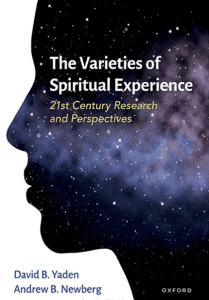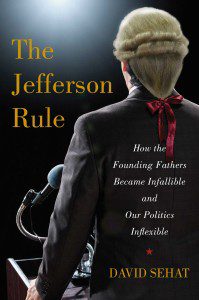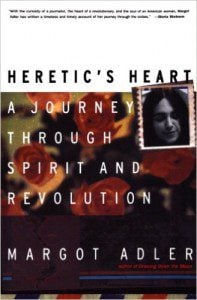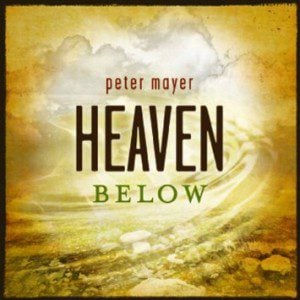David Foster Wallace (1962 – 2008) is perhaps best know for his 1996 postmodern novel Infinite Jest, which is famous for its length  (weighing in at more than 1,000 pages) and complexity (its footnotes have footnotes). I will confess to having started reading it once a few years ago, and never finding the time to finish. I hope to return to it someday.
(weighing in at more than 1,000 pages) and complexity (its footnotes have footnotes). I will confess to having started reading it once a few years ago, and never finding the time to finish. I hope to return to it someday.
Wallace tragically committed suicide in 2008 at age 46 after a decades-long struggle with depression. He was beloved by many of the most important writers of our day, and his friend the novelist Jonathan Franzen described him as “a huge talent, our strongest rhetorical writer…. He was also as sweet a person as I’ve ever known and as tormented a person as I’ve ever known.”
In 2005, three years before his death, Wallace delivered the commencement address at Kenyon College titled, “This Is Water: Some Thoughts, Delivered on a Significant Occasion, about Living a Compassionate Life,” which has been published as its own book. And I would like to use an excerpt of that speech to reflect on the Unitarian Universalist ritual of Water Communion. (If you find Wallace’s words meaningful, I encourage you to read the full transcript as well as watch a brilliant short film that visualizes part of the speech.) For now, here are some of Wallace’s words from 8 years ago:
There are these two young fish swimming along, and they happen to meet an older fish swimming the other way, who nods at them and says, “Morning, boys, how’s the water?” And the two young fish swim on for a bit, and then eventually one of them looks over at the other and goes, “What the hell is water?” ….
The immediate point of the fish story is that the most obvious, ubiquitous, important realities are often the ones that are the hardest to see and talk about…..
The really significant education…isn’t really about the capacity to think, but rather about the choice of what to think about….
Here’s one example of the utter wrongness of something I tend to be automatically sure of: Everything in my own immediate experience supports my deep belief that I am the absolute center of the universe, the realest, most vivid and important person in existence. We rarely talk about this sort of natural, basic self-centeredness…. There is no experience you’ve had that you were not at the absolute center of…. People who can adjust their natural default-setting…are often described as being “well adjusted,” which I suggest to you is not an accidental term.
[Wallace goes on to eloquently detail examples of the “boredom, routine, and petty frustration” that characterize many parts of adult life such as waiting in a grocery store line at the end of an already too long work day. He says:]
my natural default-setting is the certainty that situations like this are really all about me, about my hungriness and my fatigue and my desire to just get home, and it’s going to seem, for all the world, like everybody else is just in my way, and who are all these people in my way? And look at how repulsive most of them are and how stupid and cow-like and dead-eyed and nonhuman they seem here in the checkout line, or at how annoying and rude it is that people are talking loudly on cell phones in the middle of the line, and look at how deeply unfair this is: I’ve worked really hard all day and I’m starved and tired and I can’t even get home to eat and unwind because of all these stupid…people…. It’s the automatic, unconscious way that I experience the boring, frustrating, crowded parts of adult life when I’m operating on the automatic, unconscious belief that I am the center of the world and that my immediate needs and feelings are what should determine the world’s priorities. The thing is that there are obviously different ways to think about these kinds of situations.
In this traffic, with all these vehicles stuck and idling in my way: It’s not impossible that some of these people in SUV’s have been in horrible auto accidents in the past and now find driving so traumatic that their therapist has all but ordered them to get a huge, heavy SUV so they can feel safe enough to drive; or that the Hummer that just cut me off is maybe being driven by a father whose little child is hurt or sick in the seat next to him, and he’s trying to rush to the hospital, and he’s in a way bigger, more legitimate hurry than I am — it is actually I who am in his way. Or I can choose to force myself to consider the likelihood that everyone else in the supermarket’s checkout line is just as bored and frustrated as I am, and that some of these people probably have much harder, more tedious or painful lives than I do, overall….
if you’ve really learned how to think, how to pay attention, then you will know you have other options…. The only thing that’s capital-T True is that you get to decide how you’re going to try to see it. You get to consciously decide what has meaning and what doesn’t….
The capital-T Truth is about life before death…. It is about simple awareness — awareness of what is so real and essential, so hidden in plain sight all around us, that we have to keep reminding ourselves, over and over: “This is water, this is water.”
It is unimaginably hard to do this, to stay conscious and alive in the adult world day in and day out. Which means yet another grand cliché turns out to be true: your education really is the job of a lifetime…. I wish you way more than luck.
When Wallace says, “This is water,” I hear strong resonances with what Unitarian Universalists call our Seventh Principle: “Respect for the interdependent web of all existence of which we are a part.” And it has been suggested that we UUs would be well-advised to switch our Seventh Principle with our First Principle (“The inherent worth and dignity of every person.”) For UUs (as well as for many people in the Western world), individual freedom tends to be what Wallace calls “our default setting.” But Wallace reminds us that the most radical potentiality of that individual freedom is the ability to choose to perceive our interdependence with one another, with the ecosystem of this Earth, and even with this cosmos we call the universe.
Regarding the opening fish story, Wallace said that, “the most obvious, ubiquitous, important realities are often the ones that are the hardest to see and talk about,” and Wallace’s insight about “This is water” also points us toward one of the deepest meanings of the Unitarian Universalist ritual known as Water Communion. We are the fish in Wallace’s parable. And when we are stressed, anxious, and under pressure, we sometimes feel like we are all alone in the vast ocean of this world. But really we are always already swimming in a connected sea of interdependence that we often fail to perceive. “This is water, this is water.” The practice of Water Communion seeks to remind of how our many sources flow together into one diverse community.
To continue to reflect on how we can cultivate an experience of interdependence, some of you may be familiar with Buddhist metta meditation (from the Pali word for “loving-kindness” or “friendliness”), which move through three stages of awareness. From the first-person singular (“May I be filled with loving kindness. May I be well, peaceful and at ease, and whole”), to the second-person (“May you be filled with loving kindness. May you be well, peaceful and at ease, and whole”), and finally to the first-person plural (“May we be filled with loving kindness. May we be well, peaceful and at ease, and whole”).
Each stage of this meditation is vital. When we find ourselves feeling burned-out, over-scheduled, and doing so much for others that we neglect self-care we need to return to that first-person singular focus on loving kindness toward ourselves (“May I be well, peaceful and at ease, and whole.”) At the same time, the meditation builds in ever-expanding concentric circles to the first-person plural that includes loving kindness both for ourselves and all beings (“May we be well, peaceful and at ease, and whole.”) The move here is from focusing on a healthy independence to a more mature and healthy interdependence, which includes a healthy self.
And the reason this metta (“loving-kindness”) chant was written is that, in David Foster Wallace’s term, our “default setting” is neither for ourselves to be peaceful and at ease, nor for us feeling in solidarity with all existence. Our default setting is narcissism, and we need practices like loving-kindness meditations to help inculcate a different, healthier, more expansive way of being in the world.
And returning to David Foster Wallace’s grocery store scenario, he gives us another example of what he means:
most days, if you’re aware enough to give yourself a choice, you can choose to look differently at this…dead-eyed, over-made-up lady who just screamed at her kid in the checkout line. Maybe she’s not usually like this. Maybe she’s been up three straight nights holding the hand of a husband who is dying of bone cancer. Or maybe this very lady is the low-wage clerk at the motor vehicle department, who just yesterday helped your spouse resolve a horrific, infuriating, red-tape problem through some small act of bureaucratic kindness. Of course, none of this is likely, but it’s also not impossible. It just depends what you want to consider. If you’re automatically sure that you know what reality is, and you are operating on your default setting, then you, like me, probably won’t consider possibilities that aren’t annoying and miserable. But if you really learn how to pay attention, then you will know there are other options. It will actually be within your power to experience a crowded, hot, slow, consumer-hell type situation as not only meaningful, but sacred, on fire with the same force that made the stars: love, fellowship, the mystical oneness of all things deep down.
To echo this sentiment from a Christian perspective, most people misunderstand the deep meaning underneath what Jesus called the Second Greatest Commandment, which is ”to love your neighbor as yourself.” Most people fail in their attempts to “love your neighbor as yourself because they are operating from a first-person singular or second-person singular perspective. They are operating from their default perspective in which your neighbor and yourself are two separate, independent individuals. The challenge is to shift your way of perceiving the world from first- or second-person singular to first-person plural, from independence to interdependence — to experience that at the deepest level your neighbor is yourself. And only from that place of existentially experiencing the interdependent web of all existence will you be able to authentically say and live the words of that third verse: “May we be filled with loving kindness. May we be well. May we be peaceful and at ease. May we be whole.” On that deepest level of realized interdependence, you will know for yourself “what is so real and essential, so hidden in plain sight all around us, that we have to keep reminding ourselves, over and over: “This is water, this is water.’”
Water Communion
If you are unfamiliar with the ritual of Water Communion, one way to practice with a large group on a Sunday morning is the following:
You are invited to come forward, say your name — and to allow as many people as want time to participate — share one or two short sentences about (1) where your water comes from and (2) what you are bringing to this congregation as a result of being shaped by the place from which that water comes: a new perspective, an important learning, an inward journey, etc. After sharing, you are invited to pour a small amount of the water into this one large bowl.
Water may come from travels or from your tap at home. In case you forget water or do not have access at this time to the specific water that has been most meaningful to you from the past year, we will have a pitcher of extra water that can symbolically represent water from whatever place is meaningful to you.
This year for Water Communion in my congregation, I brought water from the annual Unitarian Universalist Association General Assembly, which was in Louisville, Kentucky this year. As reported in UU World, on Thursday, June 20, 2013, “two thousand Unitarian Universalists went down to the river to pray.” But their prayer was like that of Rabbi Abraham Joshua Heschel, who said, reflecting on his experience with Dr. King in Civil Rights Movement, “When I marched in Selma, my feet were praying.”
That night in June, myself, my wife Magin, and two other members of my congregation joined two thousand other UUs on the banks of the Ohio River at a rally to raise awareness about the need for clean power as an alternative to the environmental injustices caused by coal mining, fracking, and mountaintop removal. A common theme of the many speakers was that, “We are connected. We are one.” And how we treat one another and this one planet matters.
Wendell Berry, the author, activist, and Kentucky farmer, was at that protest as well, and he read his poem “Questionnaire,” which included these provocative and prophetic lines:
How much poison are you willing / to eat for the success of the free / market and global trade? / Please / name your preferred poisons…. / State briefly the ideas, ideals, or hopes, / the / energy sources, the kinds of security, / for which you would kill a child. / Name, please, the children whom / you would be willing to kill.”
Accordingly my two sentences for Water Communion were, “I bring water from the Ohio River. And I bring to this congregation the stories have heard of environmental injustices, and a commitment to help lesson the effects of climate change.” May it be so.
For Further Reading
- Carl Gregg, “Water Communion: ‘A River Runs through It’” (September 10, 2012), available at http://www.patheos.com/blogs/carlgregg/2012/09/water-communion-a-river-runs-through-it/.
Notes
1 A transcript of Wallace’s speech is available at http://web.ics.purdue.edu/~drkelly/DFWKenyonAddress2005.pdf. A 10-minute short film based on his speech is available at: https://www.youtube.com/watch?v=6z5TIFr5XMo.
2 Mark Nepo, The Book of Awakening: Having the Life You Want by Being Present to the life You Have, 150.
3 at the deepest level your neighbor is yourself — see Beatrice Bruteau, The Holy Thursday Revolution, 6.
4 For a more detailed account of the rally, see “On banks of Ohio River, UUs rally for clean energy,” available at http://blogs.uuworld.org/ga/2013/06/20/on-the-banks-of-the-ohio-river-uus-rally-for-clean-energy/.
The Rev. Dr. Carl Gregg is a trained spiritual director, a D.Min. graduate of San Francisco Theological Seminary, and the minister of the Unitarian Universalist Congregation of Frederick, Maryland. Follow him on Facebook (facebook.com/carlgregg) and Twitter (@carlgregg).
Learn more about Unitarian Universalism:
http://www.uua.org/beliefs/principles












